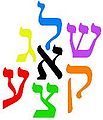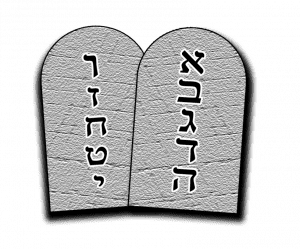 I have been thinking again of the joys and dangers and the absolute necessity of biblical translation. In an earlier blog—I cannot recall precisely when—I addressed the many issues surrounding the translation of an ancient text, the Bible, into modern English. The act, of course, we take for granted, assuming that excellent scholars who have spent their lives acquiring multiple languages—primarily Hebrew, Aramaic, and Greek—but also including a rich panoply of other ancient tongues—Sumerian, Ugaritic, Akkadian, Syriac, Coptic, Latin among a host of others—can effectively offer to those who do not have access to any of these languages reasonably accurate renderings of classical Hebrew and Koine Greek for our use as readers, preachers, and teachers of the Bible in our English-based context. However, we would always be wise to review just what is happening when any written text is translated from one idiom to another; the act is wildly difficult and fraught with more pitfalls than the average reader of the Bible can imagine. And because that is so, we would do well to examine more carefully just what translation means for the understanding of those who read the translation and who must rely on it as the source of meaning of a given text. When that text is the Bible, regularly called “sacred” or “the Word of God,” it is doubly important to know what lies behind that chosen translation that serves as “the sufficient rule both of faith and of practice,” as one of the popular Christian creeds expresses the matter. Given that astonishing claim, it is of considerable moment to think again about translation.
I have been thinking again of the joys and dangers and the absolute necessity of biblical translation. In an earlier blog—I cannot recall precisely when—I addressed the many issues surrounding the translation of an ancient text, the Bible, into modern English. The act, of course, we take for granted, assuming that excellent scholars who have spent their lives acquiring multiple languages—primarily Hebrew, Aramaic, and Greek—but also including a rich panoply of other ancient tongues—Sumerian, Ugaritic, Akkadian, Syriac, Coptic, Latin among a host of others—can effectively offer to those who do not have access to any of these languages reasonably accurate renderings of classical Hebrew and Koine Greek for our use as readers, preachers, and teachers of the Bible in our English-based context. However, we would always be wise to review just what is happening when any written text is translated from one idiom to another; the act is wildly difficult and fraught with more pitfalls than the average reader of the Bible can imagine. And because that is so, we would do well to examine more carefully just what translation means for the understanding of those who read the translation and who must rely on it as the source of meaning of a given text. When that text is the Bible, regularly called “sacred” or “the Word of God,” it is doubly important to know what lies behind that chosen translation that serves as “the sufficient rule both of faith and of practice,” as one of the popular Christian creeds expresses the matter. Given that astonishing claim, it is of considerable moment to think again about translation.
The subject is vast, of course, and I can only broach a small portion of its problems, but I propose to do that by focusing squarely on only one verse from the Hebrew Bible, Job 40:8. As I have revealed in several other of my essays, I am a life-long student of the book of Job, finding in its complex pages any number of ideas and reflections that I have found crucial for my life of faith. Thus, it seems more than appropriate that I use a verse from Job as my jumping off point for an exploration of the problem of translation. (I have been greatly helped in this discussion by the idiosyncratic but delightful 1990 commentary on Job by Edwin M. Good).
As a point of reference, the NRSV translates Job 40:8 as follows:
Will you even put me in the wrong?
Will you condemn me that you may be justified?
A more modern reading from the 2010 highly lauded translation of Robert Alter reads:
Will you indeed thwart My case,
hold me guilty, so you can be right?
For what it may be worth, I add my own rendition:
Would you even make my justice useless, make me wicked, so you can be righteous?
Though these three translations differ in wording, their supposition appears to be basically the same: YHWH is here asking Job whether he is willing to undermine YHWH’s running of a moral universe in order to prove that he, Job, is finally, of the two, the righteous one. In other words, Job, says YHWH, sees the world as a zero-sum game: if YHWH is right, Job must be wrong, but if Job is right, then YHWH must be wrong. In such a view there can be no middle ground, no compromise, no possible way that some right may be found in both parties.
Crucial Hebrew words appear in this verse, whose meanings are varied and characteristically important for comprehending just what the Hebrews thought about questions of morality, both divine and human. Those words are mishpat, ordinarily translated “justice,” and zedakah, usually rendered “righteous.” However, the former word possesses several other connotations. It can mean “custom” or something like “expected behavior.” It may also mean a “trial,” or even the outcome of that trial; it may also mean “decision” or “judgment.” It might even mean “order,” either in human society or in the cosmic world. Given all those possibilities that hardly exhaust the possible nuances, using my translation above, I could read any of the following:
Would you even make my justice (custom, litigation, legal decision, judgment for punishment, governing, order) useless?
Any of those is a possible translation of that protean word, and because that is so, the meaning of the charge YHWH levels at Job changes in multiple ways. You may reflect on the possible meanings at your leisure.
And then, to add to the difficulty of translation, there is the question of tone. How exactly does one hear the tone of YHWH’s question to Job? Tone is notoriously slippery to assess, given the quite spare vocabulary that classical Hebrew possesses, barely 8,000 different words. The language is slight but exceedingly flexible, making translation both delightful and difficult all at once, offering enormous power to the translator in her attempt to “get it right,” or perhaps better said, “get it understandable,” believing necessarily that “right” and “wrong” are not the correct categories by which any reading should be evaluated. The NRSV reading above might be judged aggrieved, as if YHWH is somehow saddened or wounded by Job’s scathing words. Perhaps my translation might be heard as aggressive, rather as if YHWH is scolding Job for daring to bring such charges against the divine judgment. The tone might even be named defensive, as a translation of Dermot Cox from 1978 reads: “Will you even frustrate my judgment?”
These many possible tones—and they are hardly exhaustive—along with the various translator’s word choices go a long way to determine just how any translator ultimately interprets the book. If the commentator thinks that YHWH’s final speeches are designed to overwhelm Job, he/she is likely to use a defensive or aggressive tone, while those who think that YHWH seeks reconciliation with Job at the last will necessarily use a gentler tone. There is finally no way to separate a translation from an interpretation, precisely because all translation is finally interpretation. There can be no literal translation, despite what our fundamentalist friends, among others, insist is possible. “No English word, let alone a sentence, is the exact equivalent in ranges of meanings and fields of connotation of its corresponding Hebrew word or sentence. Anything the translator says in English distorts the Hebrew…” (Good). Just ask any modern speaker of two languages, and they will confirm Good’s claim; translation is always interpretation, and a purely literal translation is simply unavailable to anyone at any time, no matter the language facility of the translator.
So where does all of that leave Bible readers, as they choose their favorite translations to read and study? It should leave them wary but far from helpless and hopeless. In fact, it should offer them a good bit of comfort to know that even those who read the ancient languages are finally unable to translate “completely accurately” or “absolutely correctly.” Such results are chimeras, impossible results of even the most faithful and scholarly readings. That does not at all mean that the Bible is not available to English-only readers; of course it is available. But what it does mean is that heavy reliance on any one translation, no matter its official imprimatur from ecclesiastical authorities or persuasive publishers or potent pulpiteers. An English reader has well over 100 translations from which to choose, some of which arise from learned committees and some of which spring from the study of gifted individuals. I suggest a combination of both for study, teaching, and preaching. As my example of Job 40:8 indicates, the ancient text is replete with nuance and complexity and is fully worthy of a deeper and longer gaze to attempt to plumb the bottomless depths of what it may denote and connote. No one should ever sell the Bible short; there is always more there than meets the surface glance, so use the grand resources available to all to reach into that well that, thank God, never will run dry.
(Images from Wikimedia Commons)











